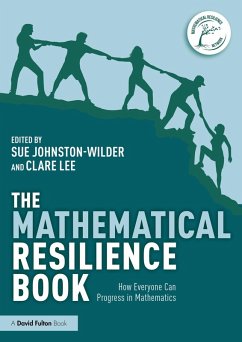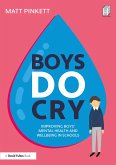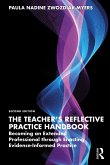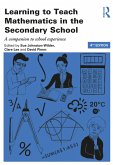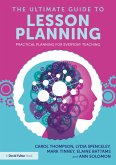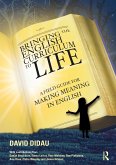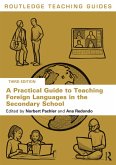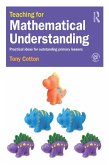This book is about mathematical resilience: what it is, why it is important, how learners can develop it and how teachers can teach in ways that help learners become mathematically resilient.
Dieser Download kann aus rechtlichen Gründen nur mit Rechnungsadresse in A, B, BG, CY, CZ, D, DK, EW, E, FIN, F, GR, HR, H, IRL, I, LT, L, LR, M, NL, PL, P, R, S, SLO, SK ausgeliefert werden.
"This book advocates building mathematical resilience in learners, both adult and younger, that they will adapt to challenge, persevere and thrive. It argues that mathematical resilience underpins lifelong learning in a changing society. It provides inspiration and practical advice for teachers to transform the learning environment but it also aims to provoke change more widely in policy and attitudes towards mathematics."
Dr Jonathan Cole, School of Mechanical & Aerospace Engineering
"For far too long, the emotional side of learning mathematics has been neglected. I enthusiastically embrace the thorough exploration of mathematics resilience in this comprehensive book. It is skillfully written by a vibrant community of mathematics educators, and expertly edited, making it an invaluable resource for mathematics teachers at all levels, ranging from young learners to university students."
Dr Julie Crowley, Munster Technological University
"Anxiety around mathematics is a serious problem in our education system which has the effect of disenfranchising a huge proportion of the population. Lack of confidence in their own mathematical ability prevents many adults from making informed choices about their finances or health care and from progressing in their chosen career. Parents who suffer from maths anxiety may pass their fears on to their children embedding feelings of hopelessness and disempowerment. This book is essential reading for educators, parents and anyone who believes that numeracy is as essential as literacy in enabling young people to take a full and active role in society."
Lindsay Nicholson MBE, University of Warwick
"Brilliant and essential. Everyone needs to read this book as a next-generation act of resilience-building. Its panoramic exploration decodes every imaginable aspect of the mathematics teaching and learning environment, within and beyond the classroom. Its optimism is reinforced by the definitive guide."
Dr Yuqian (Linda) Wang, Durham University
"As someone who works in mathematics support in higher education, I encounter students with significant levels of mathematics anxiety on an almost daily basis. There is no other subject in the school curriculum that engenders so much anxiety. When did you ever encounter someone who broke out into a cold sweat at the thought of having to read some history? Or some biology? Having reasonable fluency with mathematical concepts is essential for being an informed member of 21st century society - and yet many are prevented from having such fluency because of their mathematical anxiety, not because they cannot actually "do the maths". This book which brings together the current state of knowledge, not just relating to mathematics anxiety and resilience research but also, and more importantly, good practice in how to support those who are mathematically anxious and to develop mathematical resilience addresses a very important need. The present reality is that too many people have mathematics anxiety and it is essential that the education system recognises this and that appropriate teaching is put in place. However, we need to go beyond that - and this book does this - to ask why do so many people develop mathematics anxiety and how can we stop this happening in the first place. Prevention is better than cure and the final chapters of this book address how mathematics education might be reformed to reduce the number of people who develop mathematics anxiety in the first place. This book meets a significant need."
Professor Duncan Lawson, MBE, Coventry University
"I am delighted to see this new book addressing maths resilience. Maths anxiety is now recognised worldwide with Sue and Clare having to take much of the credit for this level of awareness.
The book has chapters written by authors /experts from around the world, from Australia to Chile, from the USA to Kenya, some 11 countries in all, each bringing new perspectives and insights to this important educational issue.
The focus on resilience sets a positive tone, though, of course, anxiety is addressed, too. Although the academic focus is on maths, there is much that will be pertinent to other subjects and areas of study, such as the sciences. Education is not something that is offered up to the ether. It is for people, and we must factor them in. I feel that is stating the obvious, but the fact that contributions to this book are worldwide support the suggestion that we educators need to address the issue.
I like that the chapters cover the age range from children to adults. Sadly, it is unlikely that learners outgrow their problems. Often it is quite the reverse.
So, I welcome this book and I am sure it will have a positive influence on many lives, including the parents who often feel helpless in the face of the problems of motivating their children. I hope they, too, will fell that this is an important and useful book.
I congratulate Sue and Clare for collecting together such an inspiring and international collection of expert authors. This book will make a significant contribution to a pervasive problem in education."
Steve Chinn, Visiting Professor at the University of Derby
"Comprehensive and evidence-based, this brand-new resource on resilience in maths intertwines critical topics like maths anxiety and growth mindset, offering a holistic perspective on nurturing resilience among learners. The approach not only enlightens but also equips educators, parents and teachers with many suggestions to transform their teaching methods. If you care at all about how young people learn maths, make sure this book is on your reading list."
Dr Sipho Morrison, Lecturer in Secondary Mathematics, University of London
Dr Jonathan Cole, School of Mechanical & Aerospace Engineering
"For far too long, the emotional side of learning mathematics has been neglected. I enthusiastically embrace the thorough exploration of mathematics resilience in this comprehensive book. It is skillfully written by a vibrant community of mathematics educators, and expertly edited, making it an invaluable resource for mathematics teachers at all levels, ranging from young learners to university students."
Dr Julie Crowley, Munster Technological University
"Anxiety around mathematics is a serious problem in our education system which has the effect of disenfranchising a huge proportion of the population. Lack of confidence in their own mathematical ability prevents many adults from making informed choices about their finances or health care and from progressing in their chosen career. Parents who suffer from maths anxiety may pass their fears on to their children embedding feelings of hopelessness and disempowerment. This book is essential reading for educators, parents and anyone who believes that numeracy is as essential as literacy in enabling young people to take a full and active role in society."
Lindsay Nicholson MBE, University of Warwick
"Brilliant and essential. Everyone needs to read this book as a next-generation act of resilience-building. Its panoramic exploration decodes every imaginable aspect of the mathematics teaching and learning environment, within and beyond the classroom. Its optimism is reinforced by the definitive guide."
Dr Yuqian (Linda) Wang, Durham University
"As someone who works in mathematics support in higher education, I encounter students with significant levels of mathematics anxiety on an almost daily basis. There is no other subject in the school curriculum that engenders so much anxiety. When did you ever encounter someone who broke out into a cold sweat at the thought of having to read some history? Or some biology? Having reasonable fluency with mathematical concepts is essential for being an informed member of 21st century society - and yet many are prevented from having such fluency because of their mathematical anxiety, not because they cannot actually "do the maths". This book which brings together the current state of knowledge, not just relating to mathematics anxiety and resilience research but also, and more importantly, good practice in how to support those who are mathematically anxious and to develop mathematical resilience addresses a very important need. The present reality is that too many people have mathematics anxiety and it is essential that the education system recognises this and that appropriate teaching is put in place. However, we need to go beyond that - and this book does this - to ask why do so many people develop mathematics anxiety and how can we stop this happening in the first place. Prevention is better than cure and the final chapters of this book address how mathematics education might be reformed to reduce the number of people who develop mathematics anxiety in the first place. This book meets a significant need."
Professor Duncan Lawson, MBE, Coventry University
"I am delighted to see this new book addressing maths resilience. Maths anxiety is now recognised worldwide with Sue and Clare having to take much of the credit for this level of awareness.
The book has chapters written by authors /experts from around the world, from Australia to Chile, from the USA to Kenya, some 11 countries in all, each bringing new perspectives and insights to this important educational issue.
The focus on resilience sets a positive tone, though, of course, anxiety is addressed, too. Although the academic focus is on maths, there is much that will be pertinent to other subjects and areas of study, such as the sciences. Education is not something that is offered up to the ether. It is for people, and we must factor them in. I feel that is stating the obvious, but the fact that contributions to this book are worldwide support the suggestion that we educators need to address the issue.
I like that the chapters cover the age range from children to adults. Sadly, it is unlikely that learners outgrow their problems. Often it is quite the reverse.
So, I welcome this book and I am sure it will have a positive influence on many lives, including the parents who often feel helpless in the face of the problems of motivating their children. I hope they, too, will fell that this is an important and useful book.
I congratulate Sue and Clare for collecting together such an inspiring and international collection of expert authors. This book will make a significant contribution to a pervasive problem in education."
Steve Chinn, Visiting Professor at the University of Derby
"Comprehensive and evidence-based, this brand-new resource on resilience in maths intertwines critical topics like maths anxiety and growth mindset, offering a holistic perspective on nurturing resilience among learners. The approach not only enlightens but also equips educators, parents and teachers with many suggestions to transform their teaching methods. If you care at all about how young people learn maths, make sure this book is on your reading list."
Dr Sipho Morrison, Lecturer in Secondary Mathematics, University of London

